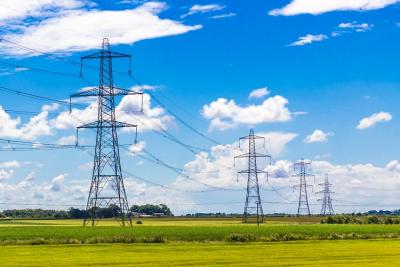Energy firms need to take public with them to build greener future
Ofgem will this week set out a five-year multibillion-pound investment programme — funded by consumers — to build a greener, fairer energy system.
This is an opportunity for the energy industry to play a key role in Britain’s recovery following Covid-19.
Huge investment is needed in the grid to charge millions more electric vehicles and connect more renewables to hit the 2050 net-zero emissions target set by the government. The costs are ultimately borne by consumers, who pay about £250 a year on average, or a quarter of their energy bill, for the networks.
In an economic downturn, it’s even more important to bring forward this investment at the lowest cost to consumers.
Ofgem, as energy regulator, is seeking to strike a fair settlement for the energy industry and consumers that helps Britain deliver on its ambitious climate goals.
We recognise that building a flexible, digitally connected, low-carbon energy system is a significant challenge that requires the industry — and the regulator — to take risks and innovate.
Our regulatory framework will help network companies invest upfront in infrastructure — so that the electric vehicle revolution, for example, is not held back by a shortage of charging points.
Companies are also invited to bid for additional funding as new technologies emerge so that we can get to net zero in the most efficient, smartest way.
In return, companies will have to reduce their ongoing costs significantly and accept much lower returns.
This means that more of consumers’ money will go on building the network rather than ending up in investors’ pockets.
The proposed price control settlement, which takes effect in April next year, will go out to public consultation before we make the final decision in December. This time we must get it right.
The National Audit Office concluded that under the current price control settlement, while network companies have provided a good service overall, consumers have paid more than they should have, partly because returns have been too high.
Now more than ever, the bargain that we strike on behalf of consumers needs to be fair in the eyes of the public.
Companies are asking to spend more of consumers’ money to build a low-carbon energy system — when many are struggling financially.
When companies respond to the proposed settlement, they should be mindful that it is in their interests to maintain this social contract and public trust in the system of network regulation that underpins it.
By accepting a more balanced settlement this time round, they can help maintain the public support needed to meet the country’s climate goals — and secure their role in delivering them.
The energy industry more widely has an opportunity to build public trust. Working closely with government, Ofgem and consumer groups, it has played a key role in the national response to Covid-19. I want to thank the industry, especially frontline staff, for helping to protect customers, including the vulnerable, and maintaining energy supplies.
The trust of customers in their supplier appears to be stronger as a result. According to research carried out by PwC in April, 82% of customers aged over 65, and 67% overall, stated that they believe their supplier will provide support if needed. This compares to a government sentiment tracker last year that put general levels of trust in energy suppliers at 41%.
Companies that earn the trust of their customers will reap the rewards. These customers are more likely to buy new products and services such as smart chargers that cut the costs of charging electric vehicles. As well as being good for companies’ bottom lines, this will help accelerate the transition to a low-carbon energy system and keep down costs for all energy users.
We hope that the industry continues to do the right thing by its customers and has learnt the lessons of what happened following the last big economic downturn in 2008, when some suppliers engaged in sharp practices and overcharged customers who did not switch. At that point, energy companies were among the least trusted in the UK.
Ofgem responded by clamping down on suppliers that did not treat customers fairly, and the price cap was introduced to ensure that those who do not switch pay a fair price for their energy.
If sharp practices creep back in, Ofgem will not hesitate to take enforcement action against any company that breaks the rules.
The proposed settlement we will set out this week will open up the energy system to global investment so it can deliver a low-carbon future for the country.
If companies embrace this opportunity, provide value for money to consumers and treat them well, they can play a central role in the recovery — creating jobs, economic growth and new industries.
So, in the difficult months ahead, I urge the industry to apply the same collective spirit that has characterised the response to Covid-19 and work with us to help get Britain building and to protect consumers from climate change as well.
This first appeared in The Sunday Times on 05 July 2020.

